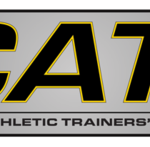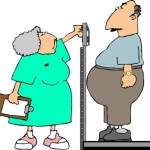California Assembly Bill 864
I have enjoyed an over 25 year career in athletic training and throughout my practice I have run into well-intentioned questions from clients and others about the distinctions between my job and other professions with similar titles or practice arenas.
With important legislation related to the athletic training profession pending in Sacramento that would finally bring California in line with 48 other states, I thought this was a great opportunity to share a bit about the profession, how it is regulated, the role athletic trainers (ATs) play in the lives of Californians (see CATA) and why this legislation is so important to me personally.
Often confused with fitness/personal trainers, physical therapists and other health and wellness professionals, the role of an athletic trainer is set apart through distinctions including education, training and responsibilities. I could not be prouder to be an athletic trainer, nor more pleased to have the opportunity to work closely with other professionals, like personal trainers, physical therapists, doctors and nurses, who share my profound commitment to the health and wellbeing of others. As an AT, I am part of a continuum of care whose structure promotes the best performance and quality of life for clients. That said, it is important to note that each of us in this continuum has a different role and purpose, and vital that each are regulated.
For instance personal trainers primarily help people become and stay physically fit. They work in gyms and health clubs, resorts, universities, workplaces, clients’ homes and, as I know well, some even work on television. Physical therapists, on the other hand, have their role in helping injured or sick people improve their movement and manage their pain. Both of these are great roles, but certainly different from the work of an AT.
In basic terms, ATs are allied health professionals who work with physically active individuals of all types to prevent harm, evaluate and recognize injury and stress, provide first aid/emergency care, work in rehabilitation and conditioning of injured individuals and supply guidance and education on issues related to injury and other conditions. We work in a myriad of settings, including secondary schools, colleges and universities, professional sports, sports medicine clinics, hospitals, the military, industrial and commercial entities. In essence, ATs are uniquely qualified physical medicine and rehabilitation specialists who provide acute injury treatment, a continuum of care from injury and illness prevention and return-to-activity clearance for athletes and other physically active individuals. With more than 50 percent of ATs working outside of sports fields, it is likely that your life is, or will be touched by the work of an athletic trainer on a regular basis, whether you are an athlete or not.
Despite the critical role Certified Athletic Trainers play in the safety of athletes and physically active people, California is one of only two states in the country that does not regulate Athletic Trainers. Having significant experience working with unlicensed trainers in a career spanning professional sports to TV, I know firsthand many of the ways that this has serious consequences to our safety.
The bottom line is that athletic training is a profession that is regulated by 48 states, recognized by multiple governmental and healthcare agencies as a specific healthcare profession and which has a single nationally accredited education and certification process. Right now in California, the practice of athletic training is completely unregulated, so anyone is free to call themselves an athletic trainer, regardless of education or training.
What makes the matter even worse is that the public has no ability to register complaints nor can the state investigate and sanction unsafe or unethical providers. AB 864 will provide assurance of minimum standards of competence of practitioners and will allow those that are practicing illegally, unsafely or unethically to be sanctioned. Who in their right mind would expect any less oversight of a healthcare professional?
That is why I am so disillusioned by opponents of this bill who mischaracterize or outright lie about the bill, its purpose and its content.
Let’s separate the AB 864 facts from the unfair lies.
The first falsehood I have heard from detractors is that the bill is an attempt to expand an Athletic Trainer’s scope of practice, create a new profession or mandate insurance carriers and Medicare for reimbursement. I have done research, asked those in the know and verified with total certainty that this is not true. Nothing in this bill allows for billing or reimbursement. Insurance companies – not state laws – decide who gets reimbursed. Furthermore, Medicare does not allow for reimbursing rehabilitation services of Athletic Trainers while they work in a physician’s office. AB 864 will not change this, nor is it even trying to do so.
Moreover, the idea that a new profession would be created or that Athletic Trainers would be in a legal position to diagnose or practice medicine is totally, completely and 100 percent false. Oversight of cases and patient referrals will always be the job of doctors – they are the most qualified to undertake those decisions.
Others claim that efforts are underway to replace physical therapists with Athletic Trainers in clinics, essentially stealing the physical therapists’ long-accepted roles. This idea is completely ridiculous. Athletic trainers can never replace physical therapists or their expertise. We can, however, augment the care to specific populations alongside physical therapists, so there would be no reason or motivation to attempt to take jobs from other providers.
Let me tell you in the simplest terms what this bill does. It addresses the licensing of Athletic Trainers by regulating a healthcare profession that is currently practicing but still unregulated in this state. Passage of AB 864 would ensure that those who serve as athletic trainers have the proper education and certification. AB 864 simply seeks to prevent unqualified healthcare professionals from practicing and protect Californians through regulations of practicing healthcare professionals. I have heard many other ATs with the same message as mine: athletic training professionals firmly believe in the continuity and integrity of care; we understand that this often means a variety of providers are required to give these services. The playing field is big enough for all professionals to play a role in offering athletes and other active individuals the best care, education and quality of life possible.
As if the regulation of health care providers to assure the highest standards were not enough, another feature of AB 864 is that the bill is cost neutral, meaning it will cost taxpayers nothing. Athletic Trainers will pay for their own licensure. Additionally, it is worth noting that Athletic Trainers who work in industry, military and with police and firemen save their employers or city government’s workman’s compensation costs.
With so much to gain and so much at stake, I really don’t see how the detractors have gotten any traction. But the fact is that they have. Won’t you join me in setting the record straight on the important role athletic trainers play in our state and remind those opposed that assuring the competency of ATs matters as much as the assurances presented by any other professional currently regulated in the state?
My past has aptly demonstrated the profound need for this legislation and my future prospects, and those of all active individuals in the state, depends on the genuine understanding of what the bill does and does not do and the subsequent affirmation that safety, health and common sense demands passage of AB 864.
- Sandy Krum ATC/L









